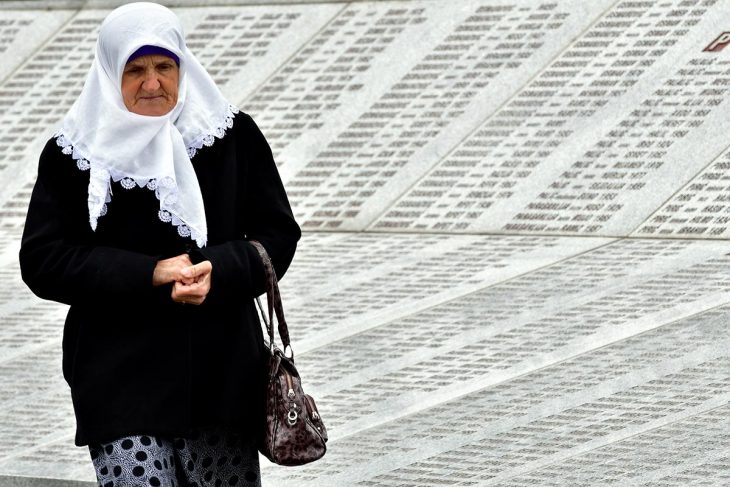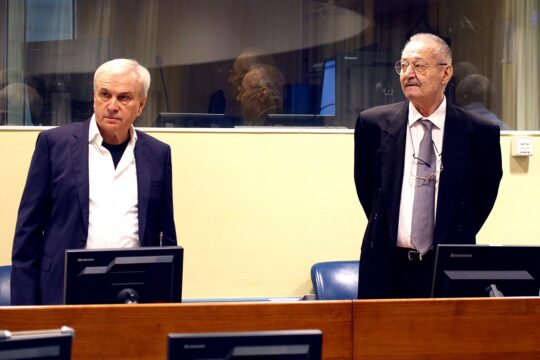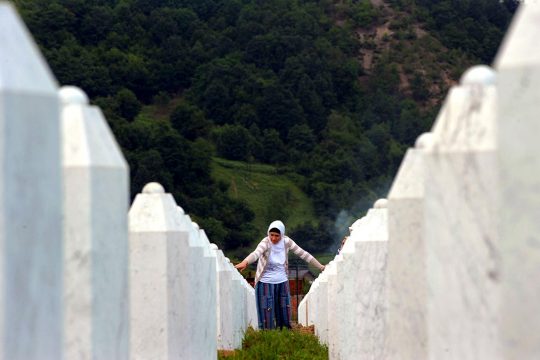To listen to the podcast, click on the "play" button below:
This July 11 marks a quarter century since the Srebrenica massacre of nearly 8,000 Bosnian Muslim men and boys. On the eve of the anniversary of the genocide we spoke to Iva Vukusic, Hikmet Karcic and Jennifer Trahan about the legacy of the International Criminal Tribunal for the former Yugoslavia (ICTY) and the limits of what justice can achieve for victims in Bosnia.
The 1995 Srebrenica massacre was ruled a genocide by both the ICTY and the United Nations’ top court the International Court of Justice (ICJ), yet in the Balkans, denial prospers. Hikmet, a genocide studies scholar, wrote for Balkan Insight recently about how denial of Bosnian war crimes has moved from the fringes to mainstream discourse. University of Utrecht historian Iva and Jennifer, NYU professor at the Center for Global Affairs, collaborated on a chapter considering which benchmarks can be used to assess the legacy of the ICTY in Bosnia for a new publication: Legacies of the International Criminal Tribunal for the former Yugoslavia: a Multidisciplinary Approach . You maybe also remember Iva from our 2019 Dogs of War episode where we discuss her research into paramilitaries.
We wanted to know what are the lasting effects of the ICTY cases in Bosnia and what has become of all those lofty pronouncements about peace and reconciliation through criminal cases. And we talked about national trials and the importance of the ICTY case records.
As always we asked recommendations and our contributors did not dissapoint. For understanding Bosnia and the impact of the ICTY Iva suggests Some Kind of Justice By Diane Orentlicher, In this link you can hear her talks about the book herself. Jennifer was busy proofreading her own book Existing Legal Limits to Security Council Veto Power in the Face of Atrocity Crimes. Hikmet confessed he spend his time reading war crimes judgements from Bosnian courts but did find time to watch the excellent BBC drama The Salisbury Poisonings based on the 2018 Novichok poisoning of former Russian military officer Sergei Skripal and his daughter.
 ASYMMETRICAL HAIRCUTS
ASYMMETRICAL HAIRCUTS
This podcast has been published as part of a partnership between JusticeInfo.net and Asymmetrical Haircuts, a podcast on international justice produced from The Hague by journalists Janet Anderson and Stephanie van den Berg, who retain full control and independence over the contents of the podcast.



